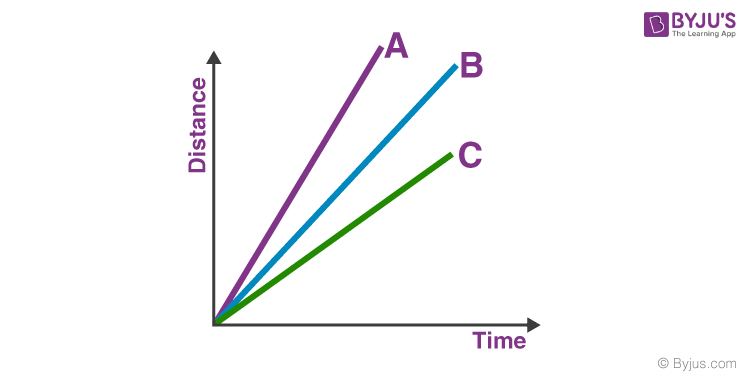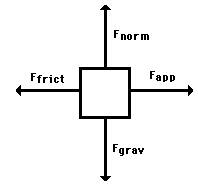Convert 982 m → km
0.982 km
A person walks 8 miles north, then 4 miles south. What is the person’s distance traveled? What is their displacement?
Distance: 12 miles
Displacement: 4 miles north
If a dog runs 50 meters in 20 seconds, how fast was the dog running?
2.5 m/s
If an object has a mass of 40 kg and accelerates at a rate of 2 m/s2, what is the force acting on the object?
80 N
If a 160N force acts on a 35 kg object, what is the object’s acceleration?
4.7 m/s2
Convert 6.3 x 10-5 into standard notation
0.000063
If I walk at a speed of 2 m/s, how far would I walk in 5 seconds?
10 meters
If you travel at 60 miles per hour, and you have to travel 350 miles, how long will it take you to arrive at your destination?
5.8 hours
Which of Newton’s laws explains why an object that is moving will continue to move for forever until something forces it to stop?
1st
Which of Newton’s laws explains that when a bouncy ball hits the floor, the floor pushes the ball with an equal but opposite force?
3rd
What’s the difference between the experimental group and the control group?
Experimental Group: the group you are testing on
Control Group: the baseline that is used for comparison
On a velocity-time graph, when do we know that the object is not moving?
When the velocity is zero. The line is on the x-axis.
If a person has a velocity of 0 m/s, what would that line look like on a distance-time graph?
A horizontal line
Which of Newton’s laws explains why it takes more force to move a bowling ball than a ping pong ball?
2nd
Why is Newton’s 1st Law sometimes called the Law of Inertia?
because inertia is an object's tendency to resist a change in motion. And Newton's 1st law states that an object at rest (in motion) will remain at rest (in motion) aka resist a change.
Record the measurement in mL
5.20 mL
Which line shows the fastest moving object?
A
If you walk at a pace of 1 m/s and then increase to a pace of 5 m/s in 8 seconds, what is your acceleration?
0.5 m/s2
There are two objects of the same mass. One object is traveling fast and one is traveling slow. How do their momentums compare?
The object that is traveling fast would have the larger momentum.
Explain how mass is different from weight.
Weight is a force (force of gravity) and mass is not. Your weight will change when you travel to the moon, your mass will not.
What are the 5 things that you need on a scientific graph?
1. Proper Title
2. Ind. on X and Dep. on Y
3. Axis Labeled with Units
4. Consistent Scale
5. Plotted Points
How long would it take a person to go from a speed of 5 m/s to 25 m/s if they were accelerating at a rate of 2 m/s2?
10 seconds
When is the object slowing down? Line 1, 2, or 3?
Line 3
What is the acceleration of this object if it has a mass of 5 kg?
3.4 m/s2
Since all of these forces appear to be balanced, is the object accelerating? Why or why not?
No because Fnet is zero, therefore, either mass or acceleration would have to be zero (F=m*a) and mass of an object cannot be zero, therefore acceleration is zero.